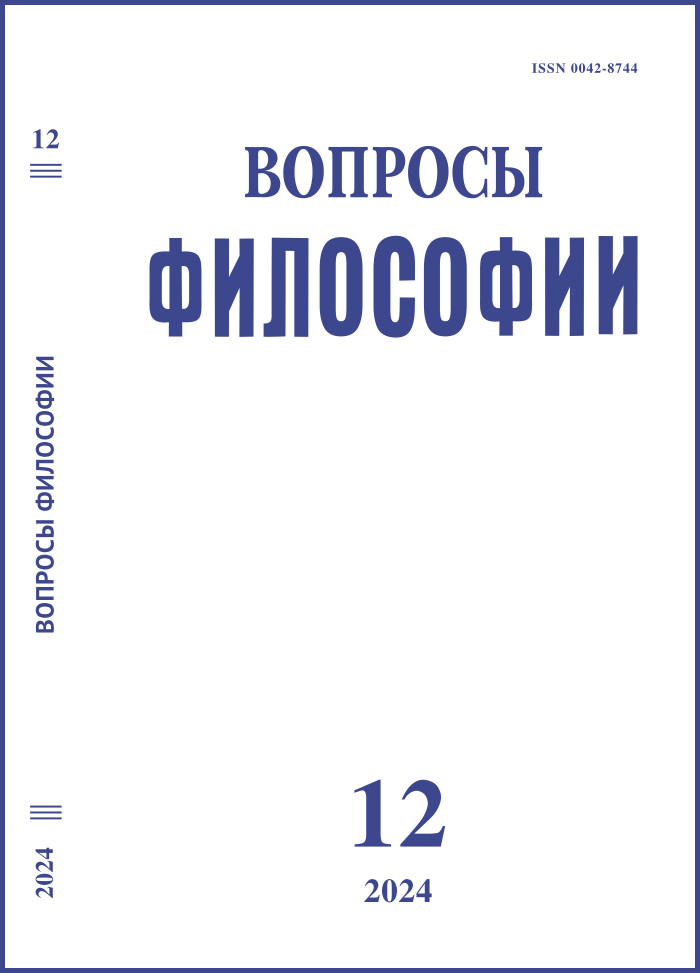What is Enlightenment? The Answer of Snell Brothers
DOI:
https://doi.org/10.21146/0042-8744-2024-12-136-147Keywords:
Enlightenment, Christian Wilhelm Snell, Friedrich Wilhelm Daniel Snell, Sapere aude, criticism, popularization, popular philosophy, Wolffianism, Kantianism.Abstract
The publication in the 1780s of Kant’s critical works after his ten-year silence significantly changed the position of intellectual forces in the field of philosophy. The Wolffians and representatives of popular philosophy began to be gradually overpowered by those who saw in these Kant’s works a new era in the history of human thought. To the latter belonged the five Snell brothers, especially Christian Wilhelm and Friedrich Wilhelm Daniel, who, despite the versatility of their scientific interests, devoted a great deal of their writings to Kant’s philosophy. They have hardly been considered in international Kant research to the present day. Having received a Wolffian education at the University of Giessen, they discovered Kant on their own and became his ardent followers and propagandists. The analysis of two early works by Ch.W. Snell shows how this discovery and the transition from the positions of Wolfianism took place, combined with the empiricism of popular philosophers such as J.G.H. Feder and Ch. Garve or with the Leibnizianism of E. Platner, to the positions of Kantianism. The most crucial argument in favour of Kant was his doctrine of morality and the Enlightenment project based on it. Ch.W. Snell’s own answer to the question ‘What is Enlightenment?’ is based on Kant’s concepts of maturity, thinking for oneself, courage to use one’s own mind, and others. The latter explicitly receives a moral expression from him. The rich teaching experience of the Snell brothers served as the main motive for their activities to disseminate Kantian ideas and popularize them in special monographs, journal articles, and special
introductions of various levels of complexity.

